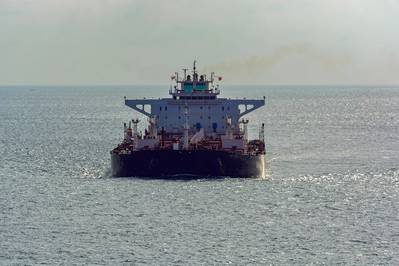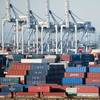Traders Scout for Tankers to Store Diesel as Virus Spreads
Oil traders are scouting for newly built supertankers to store diesel for the next few months as they brace for lower demand in Europe amid renewed restrictions aimed at battling the COVID-19 pandemic, shipping and trade sources said.
Trading companies, including oil majors, are making enquiries to charter very large crude carriers (VLCC) to carry diesel with 10 parts-per-million (ppm) sulphur for up to six months, they said, indicating that diesel floating storage could rise again.
Several such supertankers, able to carry 2 million barrels of oil each, have been booked since the second quarter of this year to ship diesel from Asia to the West and others were used to store diesel when demand first tanked earlier this year.
With renewed lockdowns in Europe, traders are concerned that diesel consumption in heating, industrial and transport sectors could be hit. It is unusual for traders to store diesel for months during peak winter demand season.
“Due to a possible second or third wave of coronavirus, inventory storing can be happening under a low freight environment,” a Singapore-based diesel trader said.
“As these are newbuilds, they can sail to demand centers, usually in West Africa or Europe or even the U.S. (to wait for demand to pick up).”
Floating storage is also economical for some traders at current low freight rates and as the benchmark 10ppm gasoil in Singapore has stayed in a contango structure since late-July.
A contango market, where prompt prices are lower than those for future delivery, tends to encourage holders of physical barrels to store a product for selling later to secure higher prices.
For new and clean supertankers coming out of yards, the rate is around $38,000-40,000 per day, two shipping sources said.
Shipowners of newly built VLCCs, which are in abundance this year, are also pricing them at low enough prices for traders to conduct maiden voyages on them, a second trader said.
(Reporting by Jessica Jaganathan and Koustav Samanta; Editing by Florence Tan and Mark Heinrich)















